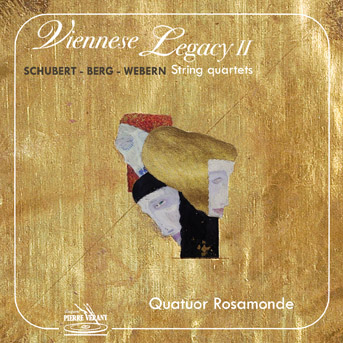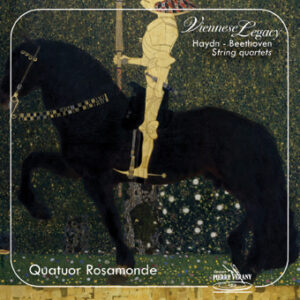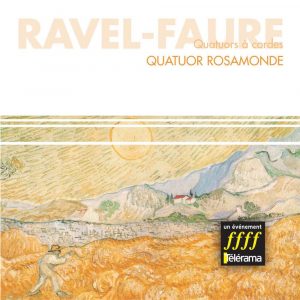Description
Soon available !
A demanding yet tempting itinerary
The second of Quatuor Rosamonde’s recordings dedicated to the Viennese School focuses on the Second
Viennese School, which developed under the guidance of its founder Arnold Schoenberg. It’s his two principal
disciples Alban Berg (1885-1935) and Anton Webern (1883-1945) who take pride of place here. The judiciously
constructed programme of this disc clearly spotlights the direct line of descent that links these two schools.
Starting with the Quartettsatz (quartet movement) by Schubert (1797-1828), it continues with a youthful
work of Webern, the Langsamer Satz (slow movement) of 1905, which is still impregnated with a kind
of romanticism, the primary source of which is found in the aesthetic of the earlier composer, who died
aged only thirty-one. It is followed by Alban Berg’s first quartet, his Opus 3 (1910), the intense lyricism
of which shows an eminently romantic temperament that is always present throughout the whole of his
oeuvre. Next come the few pieces for quartet that Webern officially recognized: they are the only ones he
wrote in this genre that bear an opus number, that is respectively the Five movements Opus 5 (1909), the
Six Bagatelles Opus 9 (1913) and the Quartet Opus 28 (1938), the sequence of which displays an increasingly
radical evolution. Not only does Webern turn his back on the postromantic aesthetic but he also liberates himself
from the great form: the total duration of these three works doesn’t even reach twenty-five minutes. Moreover his
writing, marked with the seal of atonality (Opus 5 et 9) and then serialism (Opus 28), becomes more and more
cerebral, without ever neglecting an ingenious research into sounds and expressivity.
from the texte of the CD booklet by Bernard Fournier ©ARION2024





